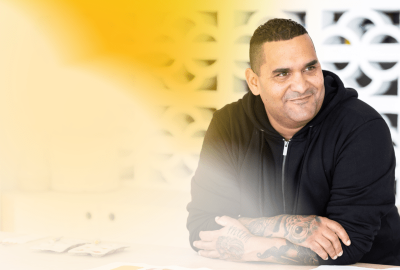Preparation, practice and remembering the details will stand you in good stead for your next interview.
So you’ve been offered an interview off the back of a great application – now the real work begins. Having all the experience in the world means very little if you fail to kick goals during the interview process and technical exercise. Give yourself the best chance possible by familiarising yourself with the most common mistakes made by those before you, and then walk in the opposite direction.
the mistake: "I got this"
Probably the most common mistake technology candidates make is hoping their resume speaks for itself and that an interview is merely an employer’s method of confirming their technical ability. Going into an interview thinking all that’s expected is to be technically competent in the role is a big no-no.
how to avoid it
Preparation and practice are key. Have you done your research on the position, manager and company? Do you have a clear understanding as to why the vacancy exists, as well as what the client is looking for? By understanding the ‘why’ you’re in a better position to perform well in an interview and go beyond just giving the manager confidence that you’re capable of doing the job. This level of preparation will ensure you achieve a higher level of confidence.
Practice interview tactics with your recruiter, too. This way you can gain valuable feedback on how you perform in an interview, and they can also advise on how best to answer behavioural-based questioning, which is common practice among interviewers today.

the mistake: "No questions here"
The second most common mistake candidates make is expecting a one-way conversation, where the interviewer asks the questions and the candidate answers them.
how to avoid it
Having questions of your own prepared shows the employer you’re thinking deeply about the job – they want to see that you really want to be part of the company.
So treat the interview as a two-way conversation, so get curious about the company and the role. Having a handful of questions ready to go tells the interviewer that you’re a serious candidate – you’re interested, curious and ready to talk business.
But you need to go beyond the basics. Use your research to address how the organisation operates, what their aspirations are for the future and how your values align with theirs. And use your questions to show that you have done this research, and how your values align.
the mistake: "You call me"
It’s one of the most basic mistakes – walking out that door and waiting to be summoned again. But failing to follow up will leave the employer thinking you’re either not interested, not organised, not confident or all of the above.
how to avoid it
Follow up within 24 hours by email to thank the interviewer for their time and reiterate your interest in the role.
Cover your desk in Post-it notes. Set up calendar alerts. Spell it out in Scrabble magnets on your fridge. Whatever reminder system you use, set it up in advance so it alerts you to send that email – particularly if you have a few roles on the boil.
And if you do, create a simple email that you can edit slightly to include the right name and role, as well as the aspect of the role you’re most interested in.
Of course, it’s important not to do it too aggressively. There’s no need to send multiple emails or fill up their voicemail. Send your one follow-up email, then wait and see what’s in store.




